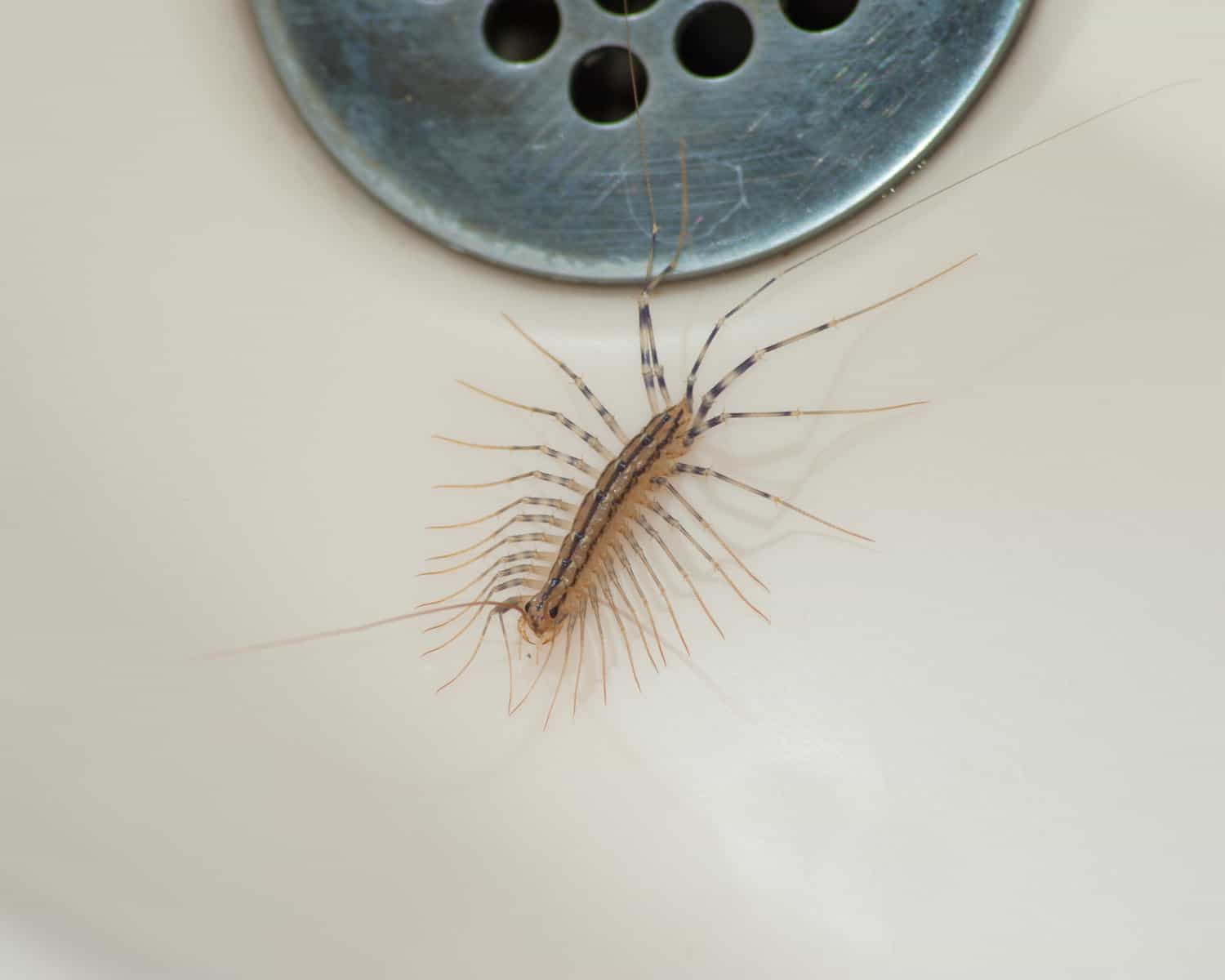
This is a house Centipede. They are ugly and prehistoric looking, but did you know they love to eat a variety of house pests? They are insect carnivores! This type of centipede has a poisonous venom that takes out roaches, moths, flies, and termites. They even take care of bed bugs!
No one wants this in their house, it would scare the bejeezus out of you. That all said, I wouldn’t pick one up with my bare hands. You read the part where I wrote they have poisonous venom right? If you are bitten, it might sting a bit but you’ll be fine. There is no reason to touch them. If you find one just sweep it into a container and return it outside and all will be fine. You do want to make sure you do your best to get rid of the pests they feed on. Just like the scorpion you need to get rid of the food sources they feed on. Make sure you seal up cracks and crevasses to keep them from entering your home or laying eggs while they are in your home.